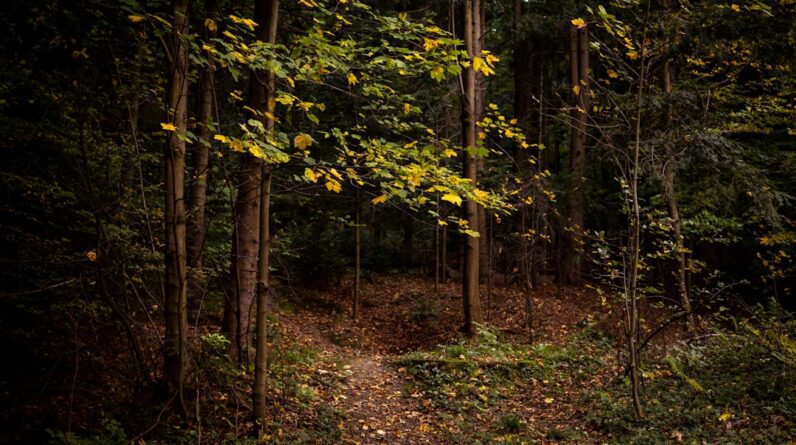Cape Breton Island, located in the eastern part of Nova Scotia, Canada, is a place of rich history and breathtaking natural beauty. With its rugged coastline, rolling hills, and vibrant communities, Cape Breton offers a unique and transformative travel experience. In this blog post, we will explore the various aspects of Cape Breton Island that make it a must-visit destination. From planning and preparation to exploring the landscapes, experiencing the culture, sampling the cuisine, immersing in the music scene, visiting historic sites, participating in outdoor activities, meeting the friendly locals, and reflecting on the transformative power of travel, Cape Breton Calling is an invitation to embark on a journey to Nova Scotia’s Highland Heart.
Key Takeaways
- Cape Breton Island has a rich history and culture that is worth exploring.
- Planning and preparation are key to making the most of your trip to Nova Scotia’s Highland Heart.
- The natural beauty of Cape Breton’s landscapes is breathtaking and should not be missed.
- The unique culture and traditions of Cape Breton’s communities are fascinating and worth experiencing.
- Sampling the delicious local cuisine and seafood is a must-do activity while in Cape Breton.
The journey to Nova Scotia’s Highland Heart: Planning and preparation
Before setting foot on Cape Breton Island, it is important to plan and prepare for your trip. Start by deciding when to visit. Cape Breton experiences four distinct seasons, each offering its own unique charm. The summer months of June to September are the most popular time to visit due to pleasant weather and various festivals and events taking place. However, spring and fall also offer beautiful scenery and fewer crowds.
When it comes to transportation options, there are several ways to reach Cape Breton Island. If you are flying in from outside of Canada, the closest major airport is Halifax Stanfield International Airport in Halifax, Nova Scotia. From there, you can rent a car or take a bus to Cape Breton Island. If you prefer a more scenic route, you can also take a ferry from Newfoundland or Prince Edward Island.
In terms of accommodations, Cape Breton offers a range of options to suit every traveler’s needs and preferences. From cozy bed and breakfasts to luxury resorts and campgrounds, there is something for everyone. Consider staying in one of the island’s charming coastal towns such as Baddeck or Ingonish, or opt for a more secluded cabin or cottage in the wilderness.
Exploring the natural beauty of Cape Breton’s landscapes
One of the main draws of Cape Breton Island is its stunning natural beauty. The island is home to the famous Cabot Trail, a scenic drive that winds its way along the coastline and through the Cape Breton Highlands National Park. The Cabot Trail offers breathtaking views of the ocean, mountains, and forests, making it a must-do activity for nature lovers and photographers.
In addition to the Cabot Trail, Cape Breton Island offers numerous hiking trails that allow visitors to explore its diverse landscapes up close. From easy walks to challenging hikes, there is something for every fitness level. Some popular trails include Skyline Trail, Franey Trail, and Middle Head Trail. These trails offer panoramic views of the coastline and opportunities to spot wildlife such as moose and bald eagles.
For those interested in wildlife watching, Cape Breton Island is a paradise. The island is home to a variety of species, including whales, seals, puffins, and seabirds. Whale watching tours are available from various coastal towns, offering the chance to see these majestic creatures up close in their natural habitat. Birdwatchers will also be delighted by the abundance of bird species that can be found on the island.
Discovering the unique culture and traditions of Cape Breton’s communities
Cape Breton Island has a rich cultural heritage that is deeply rooted in its Scottish, Acadian, and Mi’kmaq traditions. The island’s communities are known for their warm hospitality and strong sense of community. To truly experience Cape Breton’s culture, consider visiting local museums and cultural centers that showcase the island’s history and traditions.
The Highland Village Museum in Iona is a living history museum that offers a glimpse into the life of early Scottish settlers in Cape Breton. Visitors can explore the reconstructed buildings, participate in traditional activities, and learn about the Gaelic language and culture that still thrives in the area.
Another must-visit cultural center is the Fortress of Louisbourg National Historic Site. This reconstructed 18th-century French fortress allows visitors to step back in time and experience life in a bustling colonial town. Guided tours and historical reenactments bring the site to life, offering a fascinating insight into Cape Breton’s history.
Cape Breton is also known for its vibrant music and dance traditions. Traditional Celtic music can be heard in pubs and community halls throughout the island, and there are several music festivals and concerts that showcase local talent. Consider attending a ceilidh, a traditional Gaelic gathering that features music, dancing, and storytelling.
Sampling the delicious local cuisine and seafood
Cape Breton Island is a food lover’s paradise, with a culinary scene that celebrates fresh local ingredients and traditional recipes. The island’s coastal location means that seafood plays a prominent role in its cuisine, with lobster, scallops, mussels, and oysters being popular choices.
For a true taste of Cape Breton’s culinary delights, be sure to visit local restaurants and cafes that specialize in seafood dishes. From lobster rolls to seafood chowder, there are plenty of options to satisfy your cravings. Some recommended establishments include The Bite House in Baddeck, which offers a seasonal tasting menu featuring locally sourced ingredients, and The Lobster Galley in North Sydney, known for its delicious lobster dishes.
If you happen to visit Cape Breton during one of its seafood festivals or events, be sure to check them out. The annual Lobsterpalooza in Port Hood celebrates all things lobster with live music, cooking demonstrations, and of course, plenty of lobster dishes to sample. The Cape Breton Oyster Festival in Baddeck is another popular event that showcases the island’s oyster industry and offers the chance to taste a variety of oyster dishes.
Immersing oneself in the lively music scene of Cape Breton

Cape Breton Island is renowned for its vibrant music scene, particularly its traditional Celtic music. The island’s strong Scottish heritage is reflected in its music, with fiddle and bagpipe tunes being a common feature. Cape Breton is home to many talented musicians who have gained international recognition for their skills.
To fully immerse yourself in Cape Breton’s music traditions, consider attending one of the island’s music festivals or concerts. The Celtic Colours International Festival, held annually in October, is a week-long celebration of Celtic music and culture. The festival features concerts, workshops, and community events that showcase the best of Cape Breton’s music scene.
If you are interested in learning more about traditional music, there are also workshops and classes available where you can learn to play the fiddle or step dance. Many local musicians offer lessons and there are also dedicated music schools that cater to all skill levels.
Visiting historic sites and landmarks, including the Fortress of Louisbourg
Cape Breton Island is steeped in history, with numerous historic sites and landmarks that offer a glimpse into its past. One of the most iconic sites is the Fortress of Louisbourg National Historic Site, a reconstructed 18th-century French fortress that was once one of the busiest seaports in North America. Visitors can explore the fortifications, interact with costumed interpreters, and learn about life in colonial times.
Other historic sites worth visiting include the Alexander Graham Bell National Historic Site in Baddeck, which celebrates the life and achievements of the famous inventor, and the St. Peter’s Canal National Historic Site, which played a crucial role in connecting the Atlantic Ocean to the Bras d’Or Lake.
Guided tours are available at many of these sites, offering a deeper understanding of their historical significance. Some sites also offer historical reenactments, where actors portray characters from the past, bringing the history to life.
Participating in outdoor activities, such as hiking and whale watching
Cape Breton Island is a paradise for outdoor enthusiasts, with a wide range of activities to choose from. Hiking is a popular activity, with numerous trails that offer stunning views of the island’s landscapes. The Cape Breton Highlands National Park is home to several hiking trails, ranging from easy walks to challenging hikes. The Skyline Trail is one of the most popular hikes, offering panoramic views of the Gulf of St. Lawrence.
Whale watching is another popular activity on Cape Breton Island. Several companies offer boat tours that take visitors out into the Atlantic Ocean to spot whales in their natural habitat. Common species that can be seen include humpback whales, minke whales, and fin whales.
For those who prefer water activities, Cape Breton offers opportunities for kayaking, fishing, and sailing. The island’s lakes and rivers are perfect for kayaking and canoeing, with calm waters and beautiful scenery. Fishing enthusiasts can try their luck at catching trout or salmon in one of the island’s many rivers and lakes.
Meeting the friendly locals and experiencing their warm hospitality
One of the highlights of visiting Cape Breton Island is the opportunity to meet the friendly locals and experience their warm hospitality. Cape Bretoners are known for their welcoming nature and strong sense of community. To truly experience Cape Breton’s culture, consider attending one of the island’s cultural events or festivals.
The Celtic Colours International Festival, mentioned earlier, not only showcases music but also offers opportunities to participate in community events such as square dances and kitchen parties. These events provide a chance to interact with locals and experience their lively spirit firsthand.
Another way to meet locals is by visiting farmers’ markets and craft fairs. Cape Breton has a strong agricultural and artisan community, and these events are a great way to support local businesses and chat with the people behind the products.
Reflections on the transformative experience of Cape Breton Calling
Cape Breton Island offers a transformative travel experience that goes beyond just sightseeing. The island’s natural beauty, rich culture, delicious cuisine, vibrant music scene, historic sites, outdoor activities, and friendly locals all contribute to a journey that can leave a lasting impact on visitors.
Personally, my experience in Cape Breton was nothing short of transformative. The stunning landscapes took my breath away and made me appreciate the beauty of nature in a whole new way. The warmth and hospitality of the locals made me feel like part of the community, and I left with a sense of belonging that I had never experienced before.
Travel has the power to broaden our horizons, challenge our perspectives, and connect us with people and places in ways we never thought possible. Cape Breton Island is a prime example of this transformative power. It is a place where you can disconnect from the hustle and bustle of everyday life and reconnect with yourself, nature, and the world around you.
In conclusion, Cape Breton Calling is an invitation to embark on a journey to Nova Scotia’s Highland Heart. From planning and preparation to exploring the landscapes, experiencing the culture, sampling the cuisine, immersing in the music scene, visiting historic sites, participating in outdoor activities, meeting the friendly locals, and reflecting on the transformative power of travel, Cape Breton Island offers a truly unique and unforgettable experience. So pack your bags, hit the road, and let Cape Breton work its magic on you.
If you enjoyed reading “Cape Breton Calling: An Odyssey to Nova Scotia’s Highland Heart,” you might also be interested in our article on “The Transition Journey: Managing Menopause with Ease.” Menopause can be a challenging time for many women, but with the right knowledge and strategies, it can also be a time of growth and empowerment. In this article, we explore natural remedies and lifestyle changes that can help alleviate symptoms and support overall well-being during this transitional phase. Check it out here.








